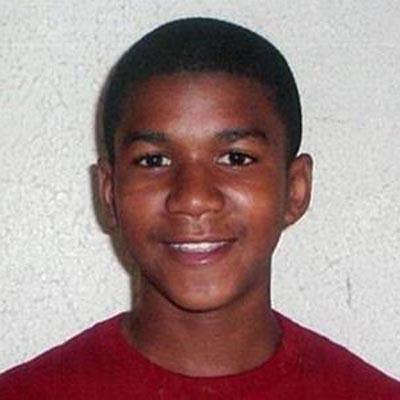
Unless you live under a rock, you’ve heard the name Trayvon Martin. If you don’t know who I’m talking about, Trayvon Martin is a 17-year old Florida teen who was murdered by a neighborhood vigilante, George Zimmerman, who pursued him and violently confronted him because the teen looked “suspicious” (Read one of the articles here). The police have yet to arrest George Zimmerman for this senseless killing and the FBI have launched their own investigation. Zimmerman claimed self-defense although the teen was unarmed and merely walking back to his father’s house from 7 Eleven.
Needless to say, this tragedy has ignited anger in the hearts of many because many believe that the killing was racially motivated. Would Zimmerman have concluded Trayvon looked “suspicious” if he was white? I and many don’t think so. Would Zimmerman be in jail right now if Trayvon was white? Many believe yes.
Now, I’ve purposely stayed away from issues of race on my blog because I believe as Christian wives and mothers, we share many commonalities and I want to focus on the beliefs and experiences we share instead of focusing on our differences. However, this terrible injustice highlights a major difference in the experience of black parenting. It’s the burden of parenting while black.
Parenting while black means that many black mothers and fathers live with the knowledge that society places very little value on the lives of our children, especially our black boys. Black boys are more likely to be labeled disabled or delinquent than other children including black girls. Black boys are more likely than other children to be placed in educational, mental health, and juvenile justice programs. Black boys and teenagers are more likely to be viewed as hostile and threatening. (You can look all of this information up for yourself. There are many studies on institutional racism in the educational system.) Parenting while black means that we live with the knowledge that we send our children into a world that’s hostile towards them, and we live with the burden of having to prepare them for the dangerous situations they may encounter.
Marian Wright Edelman says, “Every parent raising Black sons knows the dilemma: deciding how soon to have the talk. Choosing the words to explain to your beautiful child that there are some people who will never like or trust him just because of who he is—including some who should be there to protect him, but will instead have the power to hurt him. Training him how to walk, what to say, and how to act so he won’t seem like a threat. Teaching him that the burden of deflating stereotypes and reassuring other people’s ignorance will always fall on him, and while that isn’t fair, in some cases it may be the only way to keep him safe and alive.”
My heart is broken for Trayvon Martin and his family. When I look at my beautiful little boy, I know this could happen to K when he grows up. This could happen to the other black men in my life. I have a 19-year brother in college less than an hour from where this tragedy took place. I call him every day to tell him to be careful and to stay out of unfamiliar neighborhoods. He’s studying aeronautical engineering at a top school, but I told him the world views you as a threat.
What can you and I do moving forward?
I know that many of you are Christian wives and mothers. We have an opportunity to work together to change our perceptions of one another. Here are a few things we can do to implement change in this country and the world.
• Examine Ourselves – Psalm 139:23-24 (NRSV) – “Search me, O God, and know my heart; test me and know my thoughts. See if there is any wicked way in me, and lead me in the way everlasting.”
Racism and bigotry are symptoms of a deeper spiritual problem. God is not a respecter of persons and He doesn’t discriminate against His children based on race (Romans 2:11). We should examine ourselves to see if there is any wicked way in us. What drives us to hate others and discriminate against them? Is it fear or lack of knowledge? Once we allow the Holy Spirit to expose those areas that are contrary to Him, then we can begin healing.
• Educate Ourselves – Hosea 4:6a (NRSV) – “My people are destroyed for lack of knowledge.”
First, we need to educate ourselves in the Word of God. Hebrews 4:12 (NRSV) says, “Indeed, the word of God is living and active, sharper than any two-edged sword, piercing until it divides soul from spirit, joints from marrow; it is able to judge the thoughts and intentions of the heart.” Black people or people of African descent are not 2nd class citizens in the Kingdom of God. African people are present in the Bible from Genesis to Revelation (E-mail me if you would like some scriptures of the African presence in the Bible). Second, we need to educate ourselves about the history of this country and the experiences of others. Education will enable us to break the cycle of ignorance.
• Express Ourselves – Acts 2:1 (NRSV) – “When the day of Pentecost had come, they were all together in one place.”
Every week, we come together on these blogs. Our blogs are opportunities to engage in real dialogue. We enjoy exchanging recipes and lessons learned about God through our personal experiences. However, blogs are also places where we can learn about each other and communicate about issues such as these.

